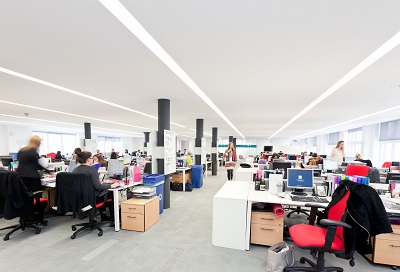How to make the most of your recruitment consultancy
The partnership between a recruiter and a candidate should be built on foundations of trust, commitment and communication. Both parties have much to gain from working together effectively. Our senior recruitment consultant, Kathryn O’Connell, explains how candidates can maximise the benefits of their consultancy.
Why wouldn’t you want someone fighting your corner, tapping into the hidden job market and providing expert industry-knowledge on your behalf? The down-sides of partnering with a recruiter are almost nonexistent. Although a consultancy’s service is free, recruiters won’t champion just anyone. It takes a level of effort, professionalism and commitment to secure the trust and hard-work of your consultancy. Ultimately, you should be treating your consultant as you would a potential employer. They are the eyes and ears of the businesses you are interested in, so exploit it!
The best recruitment consultancies are selective in their candidate registration process and will only work with applicants who they can help. So what does it take to build an invaluable and long-lasting relationship with your recruiter?
Preparation
There is nothing more remarkable to a consultancy than someone who has done their research. A candidate who knows who they are calling, why they are calling and what they want is going to stand-out like a shining beacon of hope. Equally, it suggests you are being selective and you are hand-picking the recruiters who are right for you. Before calling the consultancy, it is essential to make sure that they specialise in the areas you are interested in and that they are the right partnership for you.
Once you have researched properly, you will need to ensure your CV is up to date and accurate. If there are any discrepancies, gaps in dates or formatting errors recruiters will pick up on this immediately. After you have perfected your CV, the worst thing you can do is then apply for every job on their website. Applying sporadically suggests a lack of direction and commitment. A realistic understanding of our own experience and transferable skill-set is a must – so apply accordingly.
Having established that first connection and submitted your CV, hopefully the recruiter will be in touch regarding the next steps. If you are invited to a face-to-face meeting, really make the most of the process, show enthusiasm and act just as you would if you were meeting an employer. During the registration process, a consultant will be assessing your professionalism and ultimately deciding whether they can rely on you to act as their representative in front of a client. It’s your time to shine and convince the consultancy that you are trustworthy (as they will be trying to do the same with you!).
Solidifying trust
Trust has to be instilled from day one in order for this to be an effective partnership. There are two contributing factors I’d like to encourage here: 1) commitment and communication and 2) honesty and transparency.
Firstly, in order to stay on top of a consultancy’s priority list you need to strengthen the recruiter’s belief in you as a candidate. This means reassuring them that you are serious about your job search. Commitment is key here, and easily demonstrated by your willingness to stay in touch, answer the consultancy’s calls/emails and respond to any tasks with enthusiasm. Don’t put yourself at a disadvantage by being the last candidate to call back about a job! If you are reliable, contactable and flexible, you’ll be championed by your recruiter.
Equally, honesty and transparency are essential. These values act as the foundation of any healthy relationship. Lying about your previous work experience, job dates or references will only disrupt the process further down the line. It is also imperative to be as honest as possible about what you are looking for. If the consultant calls you about a job you are not interested in, tell them outright. A recruiter will want to help you and directness will only aid the process. It is a complete waste of your time if you are not transparent from day one. Furthermore, being honest about your past experience will help the consultant strengthen your application– if they can confidently understand and explain your previous roles, then they will have a better chance of securing you an interview with the client.
Taking ownership
At the end of the day there is only so much a recruiter can do to help your job search. The client will always have the final say in every stage of the process and sometimes they will be following a strict person-specification that the consultancy has to adhere to. For this reason, it is a good idea to help your consultancy help you.
This could be as simple as turning up to interviews on-time; providing feedback after an interview; keeping your recruiter up to date with your situation and responding promptly to any tasks such as tailoring your CV. Recruiters don’t ask you to do these things for fun; they are genuinely trying to help. Really make the most of the consultancy’s expertise and ask for interview preparation and application tips. Ultimately, it is your job search, so don’t expect a recruiter to shoulder all responsibility. Take ownership because the consultancy will be championing the most committed and reliable of candidates.
Overall – this partnership goes both ways. Professionalism, trust and commitment are key factors that need to be encouraged by both parties. Your relationship with a recruiter can benefit you further down the line when you are looking for that next step again, so you should avoid burning bridges. It is in the consultancy’s best interests to secure you a job so if they are unwilling/unable to help you, it is usually for a valid reason!

